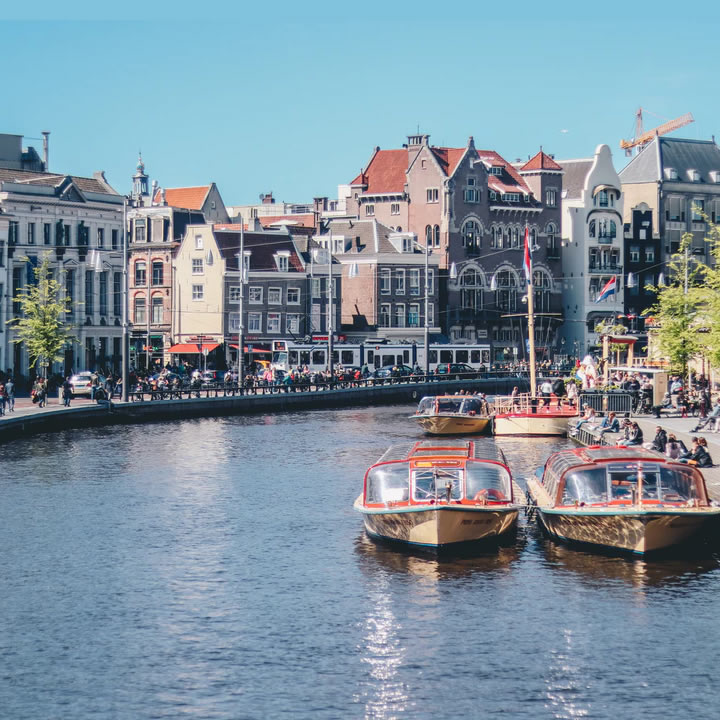On April 1, 2021, the Dutch Remote Gambling Act came into effect, allowing casino operators to provide gambling services on the territory of the Netherlands. Until now, casino enthusiasts from the Netherlands couldn’t play unless they joined platforms that were regulated in other countries, which attracted a lot of criticism, especially considering that other EU countries had already taken a gambling-friendly stance.
The Netherlands was definitely late to the party, but now that the new Act has come into effect, the prospects for the industry are already optimistic. As soon as the Government announced the new legislation, 40 companies applied for a license, which prompted many analysts to believe that Dutch gambling would become one of Europe’s strongest in as little as a few months.
In 2018, the Dutch online gambling market was already worth €591.7 million, and those were generated by users who played on unlicensed online casinos. According to the latest estimates, the industry will pick up momentum and grow, even more, becoming one of Europe’s strongest in the following years.
So, how did the market manage to grow so quickly and compete with titans like France and Germany in such little time?
The new legislation created a safer gambling environment.
Although it’s entirely possible for a gambling enthusiast to play online casino games in a casino that’s licensed in another country, a gambling market can only truly evolve when the Government legalizes it and creates a sustainable gambling environment that favors safety, user experience, and innovation. And that’s what happened when the Dutch Remote Gambling Act came into effect. The Act introduced a series of measures that boosted consumer trust and regulated the activities of online casinos in a way that protects the users. The most interesting measures included:
- All licensed casinos, whether online or offline, have to keep a database of their registered users using their social security numbers. When a user decides that they no longer want to gamble, the casino will have to exclude them from their services and cannot send them ads.
- Casino operators can only use strictly controlled marketing strategies.
- All users have to verify their age before entering a casino.
- The activities of the casinos will be controlled by the Kansspelautoriteit.
- Measures have been taken to address gambling addiction.
All these regulations clearly place the focus on customer protection, so it doesn’t come as a surprise that operators seized the momentum. At the same time, the number of users who joined online casinos increased. The fact that many land-based casinos were closed in the past year also helped because people were looking for new ways to pass the time at home, and online casinos were there to deliver.
Now that new operators are allowed to enter the Dutch market, the industry will definitely become more competitive, and that will create better conditions for players. At the same time, the existing operators will be able to expand their services and boost their audience’s loyalty, which brings us to the other factor that helped the Dutch casino industry grow, game variety and bonuses.
Casino game diversity and great bonuses
With online gambling now regulated, players can enjoy a wide variety of casino games. The latest report we have on the preferences of Dutch casino players is from 2018 and reveals that the most popular casino games are bingo, poker, slots, and sports betting. Lotteries are also popular, but their activity was not affected by the Remote Gambling Law. The online slots market has evolved a lot compared to previous years, especially in terms of themes.
Based on what we’ve seen so far, the future of online casino themes is looking bright. For many years, the themes have been more on the classic side but now, inspired by trends such as the ones on the Japanese market, Dutch casinos are experimenting with new themes that make the gameplay experience less linear and even add RPG elements. Some of the newer slot games have themes inspired by movies, sports, TV shows, and pop culture icons, and players even have access to various types of slot machines of various difficulty levels.
The number of people playing online roulette in casinos has also increased, and that’s mostly thanks to the latest developments in AI. Casinos have invested heavily in tech innovations because modern players really are looking for platforms that step up their game and offer them access to exclusive features such as live games. Ultimately, what online casinos are trying to do is replicate the real-world experience as much as possible and make players feel as if they are in a physical casino.
To further attract new players, Dutch online casinos have expanded their list of bonuses and special offers, since bonuses are one of the main factors that differentiate online casinos from physical ones. And there’s a lot of variety here too. For example, new players can claim welcome bonuses, which can either match the amount of the first deposit or multiply it. Then, that bonus can either be withdrawn or invested in other casino games.
Users who play slots can get free spins, which boost the winning odds considerably, and there are many other bonuses and promotions running all year round. For example, players also have loyalty bonuses, cashback bonuses, and reload bonuses. Basically, no matter what you play, bonuses are bound to multiply your earnings and turn online casinos into serious competitors of physical casinos.
The Netherlands is by no means the only gambling success story in Europe. The UK, France, and Germany also have strong gambling markets, but the Netherlands stands out because they’ve come very far in a short time. It’s the perfect example of how gambling can help the local economy and put a country on the map, if the legislation is implemented correctly, grounded into reality, and focuses on the user’s safety and best interests.

